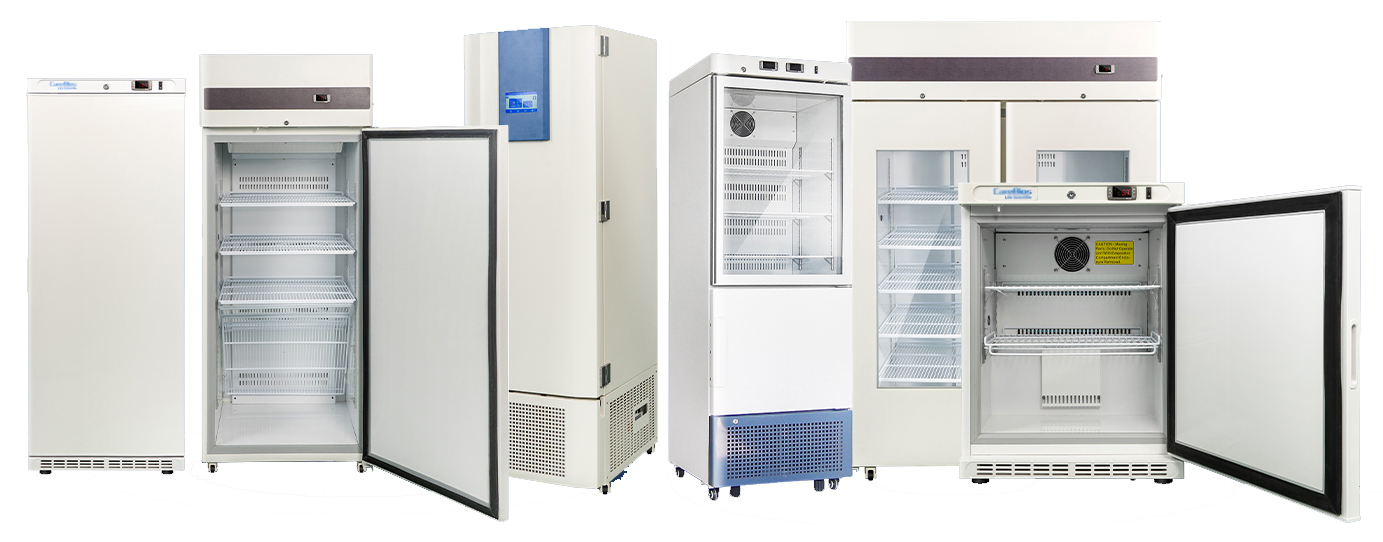Solutions

Refrigerators are an essential part of any hospital’s infrastructure, serving an important role in maintaining the safety and quality of pharmaceuticals, blood, and other medical supplies. Different refrigerators serve different functions, and it is essential to choose the right type of refrigerator to ensure that medications and other products remain at the required temperature. Proper maintenance and regular system checks are necessary to ensure that these refrigerators function well and keep temperature fluctuations in check.
This proposal will discuss the different types of refrigerators for different functions of a hospital.
Vaccine Refrigerators
Vaccine refrigerators are designed to maintain the temperature of vaccines between 2°C to 8°C. Vaccines are susceptible to damage if exposed to temperatures outside of this range. Therefore, vaccine refrigerators have temperature monitoring systems to ensure the temperature remains at a consistent level. These refrigerators also have a backup battery system to ensure vaccines are not damaged during power outages. The capacity of vaccine refrigerators ranges from 50 to 500 liters.
Blood Bank Refrigerators
Blood bank refrigerators are designed to store blood and blood products at a controlled temperature. The temperature in these refrigerators must be kept between 2°C to 6°C, which helps to prevent damage and maintain the quality of the blood products. These refrigerators also have security mechanisms to prevent unauthorized access. The capacity of blood bank refrigerators ranges from 100 to 200 liters.
Pharmacy Refrigerators
Pharmacy refrigerators are essential to store pharmaceutical drugs that require a controlled temperature environment. These refrigerators have a temperature range of 2°C to 8°C, which helps preserve the quality of the medication. Pharmacy refrigerators also have digital temperature monitoring systems and temperature alarms in case the temperature goes above or below the recommended range. The capacity of pharmacy refrigerators ranges from 50 to 500 liters.
Laboratory Refrigerators
Laboratory refrigerators are designed to store any medical samples that require cold storage, such as laboratory reagents or patient samples. These refrigerators have a temperature range of 2°C to 8°C and come with an adjustable temperature control system. Laboratory refrigerators also have multiple internal compartments and storage shelves for easy organization of samples. The capacity of laboratory refrigerators ranges from 50 to 500 liters.
Medical Deep Freezers and Ultra-low Temperature Refrigerators
Some research samples and biological materials require ultra-low temperatures for long-term preservation. Examples include cell lines, DNA, RNA, and proteins. An ultra-low temperature freezer ensures that these samples are stored at the required temperature to retain their activity and integrity. And some scientific research requires ultra-low temperatures. For instance, some studies require the use of cryogenic materials such as liquid nitrogen. Ultra-low temperature freezers provide an efficient storage solution for these materials.
Medical deep freezers freezers have a temperature range of -40°C to -86°C and come with a microprocessor control system that ensures temperature accuracy and uniformity. They also have a CFC-free insulation that helps in reducing energy consumption. Cryogenic Ultra-Low Temperature Medical Freezers: These freezers use liquid nitrogen or carbon dioxide as a cooling agent to reach temperatures as low as -196°C. They are compact and provide excellent short-term storage for biological samples.